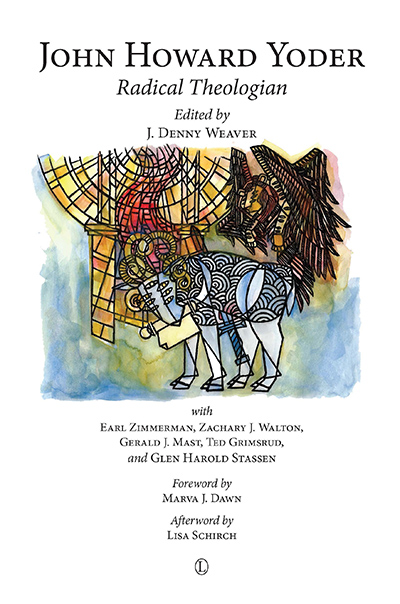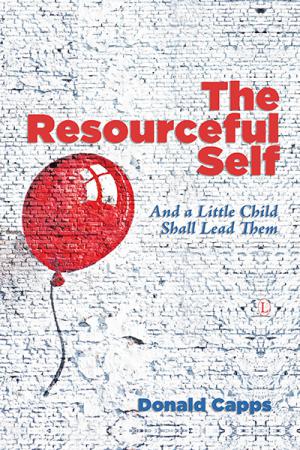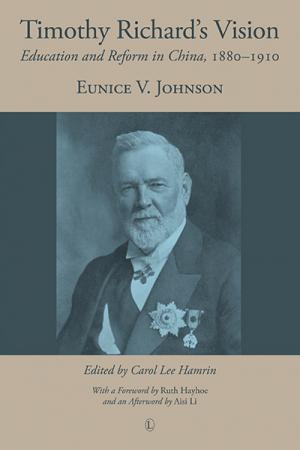Description
John Howard Yoder: Radical Theologian shows that for John Howard Yoder both theology (in particular Christology) and ethics are expressions of the meaning of the narrative of Jesus. All such statements are relative to a particular context, so that theology and ethics are subject to reaching back to the narrative in order to restate the meaning in new and ever-changing contexts. This methodology is visible in Yoder’s Preface to Theology, which has been little used in most treatments of Yoder’s thought. Yoder has been characterised as standing on Nicene orthodoxy, criticised for rejecting Nicene orthodoxy, called heterodox, and designated a postmodern thinker to be interpreted in terms of other such thinkers. None of these characterisations adequately locates the basis of his methodology in the narrative of Jesus. Thus John Howard Yoder: Radical Theologian aims to go beyond or to supersede existing treatments with its demonstration that Yoder is a radical theologian in the historical meaning of radical – that is, as one who returns to the root – but also relates his theology to the personal accusations that clouded his later years. For Christian faith, this root is Christ. Parts II and III of the book explore the sources of Yoder’s approach, and its application in several contemporary contexts.
About the Author
J. Denny Weaver is Professor Emeritus of Religion at Bluffton (Ohio) University. His other books include Keeping Salvation Ethical (1997); Anabaptist Theology in Face of Postmodernity (2000); Teaching Peace (co-edited with Gerald Biesecker-Mast, 2003); Becoming Anabaptist (2nd ed, 2005); Defenseless Christianity (co-authored with Gerald J. Mast, 2009); The Nonviolent Atonement (2nd ed, 2011); and The Nonviolent God (2013). He has lectured on atonement theology in the United Kingdom, the Congo, and Germany. He lives in Wisconsin.
Contents
List of Contributors
Foreword
Marva J. Dawn
Preface
J. Denny Weaver
Introduction
J. Denny Weaver
Part One: The Orientation of John Howard Yoder’s Theology
1. Christology: From the Root
J. Denny Weaver
Part Two: Sources of John Howard Yoder’s Theology
2. Sixteenth-Century Anabaptist Roots
Earl Zimmerman
3. Harold S. Bender, Anabaptist Vision, and the Goshen School
Zachary J. Walton
4. Oscar Cullmann and Radical Discipleship
Earl Zimmerman
5. Deconstructing Karl Barth
Gerald J. Mast
Part Three: Extending John Howard Yoder’s Theology
6. Jesus to Paul
Ted Grimsrud
7. The Free Church as Body Politics
Earl Zimmerman
8. Pacifism as a Way of Knowing
Gerald J. Mast
9. A Nonviolent Public Ethic
Glen Harold Stassen
10. Interfaith Conversations: Judaism to Islam to Hinduism
J. Denny Weaver and Earl Zimmerman
11. A Model in Conversation with Black and Evangelical Theology
J. Denny Weaver and Gerald J. Mast
12. Reflections from a Chagrined “Yoderian” in Face of his Sexual Violence
Ted Grimsrud
13. Sin and Failure in Anabaptist Theology
Gerald J. Mast
Conclusion
J. Denny Weaver
Afterword: To the Next Generation of Pacifist Theologians
Lisa Schirch
Bibliography
Index
Endorsements and Reviews
Numerous thoughtful, reflective young Christians are becoming enamoured with Yoder – something giving rise to many different interpretations of his thought. Weaver and his co-authors offer an alternative approach to many others. For them, Yoder’s whole lifework is rooted in the narrative of the life and ministry of Jesus and therefore in Christology. I highly recommend this volume to everyone interested in Yoder and the increasingly lively conversation about his theology.
Roger E. Olson, Foy Valentine Professor of Christian Theology and Ethics, George W. Truett Theological Seminary, Baylor University
One thing is clear: The contributors to this volume succeeded in presenting a compelling case for an honest, open-minded and fresh reading of one of the most influential theologians and social ethicists of the twentieth century in the lineage of the Radical Reformation. Uniquely within Yoderian scholarship, the contributors address forthrightly, wrestle with and draw lessons from Yoder’s hurtful conduct and human failures. Undoubtedly this volume of considerate reflections will provide food-for-thought for the students of Christian theology and ethics in the time to come.
Dr Parush R. Parushev, in Journal of European Baptist Studies, Vol 15, Issue 3






